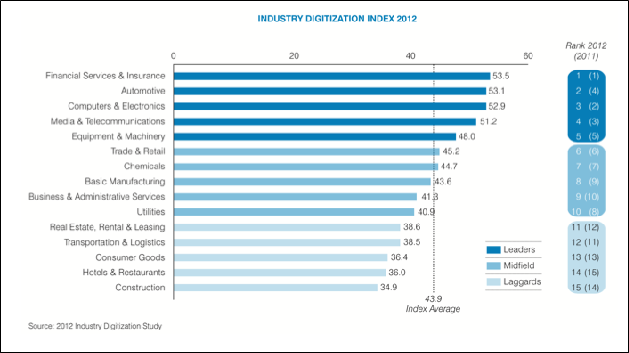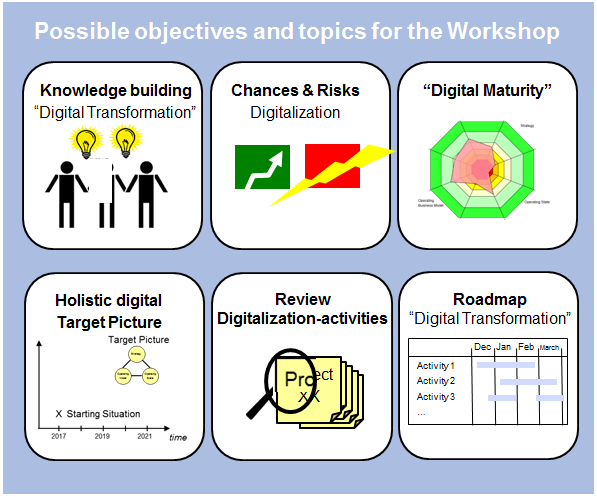Die or transform digital !
Digitalisation puts companies at risk, which do not respond quickly and effectively
"We are in the middle of the age of information and nobody realises this." This means that many are still on the road with a map that does not fit with the current landscape.
The next few years could therefore be very uncomfortable, i.e. the period 2025-2035 is for companies "the decade of survival". The situation is comparable to the transition from the agricultural age to the industrial age, which Gerhart Hauptmann describes in the play "The Weavers".
In the industrial age the Top 3 of an industry have often still earned splendidly and the number four to ten could realise handsome profits. This will change fundamentally in the context of increasing digitization in all industries and sectors. The "logic of the game" will be different !
The market for search engines is a very good "snapshot" of the future: One might think that there are currently only five search engine providers worldwide. But the reality is that 5,000 companies compete for customers and corporate profits. Of these companies, however, only one company makes not only "magnificent" but "indecent magnificent" profits: Google ! The new "logic of the game" thus means: "The Winner takes it all !!!" The remaining companies of an industry or sector will not disappear from the scene, but they will be insignificant.
Therefore, corporate leaders will have to face the choice in the very near future to be either "flotsam and jetsam" or "wave".

Many business owners and managers have meanwhile understood that the question is not "whether" but "when and how strongly" digitalisation impacts their industry. But companies are often still hesitant in establishing and implementing appropriate digitalisation initiatives and do not have the relevant methods.
AI, Big Data and automation make the interaction with customers easy, fast and focused on the individual preferences, thus offer a completely new value. The automation of processes allows cost savings and quality improvements in unprecedented height, i.e. the existing core business can be improved immensely by digital transformation. In addition, digital transformation promotes the radical redefinition of business models and growth areas.
However, digital transformation also promotes the radical redefinition of business models and growth areas. Thus, borders between industries disappear and completely new, non-industry competitors emerge in the own traditional market, possibly with completely different business models. The pressure on price, a "The Winner takes it all"-dynamic spreads into more and more industries. At the same time customer demands and expectations increase enormously. Those who do not adapt quickly enough to these changing conditions, disappear.

